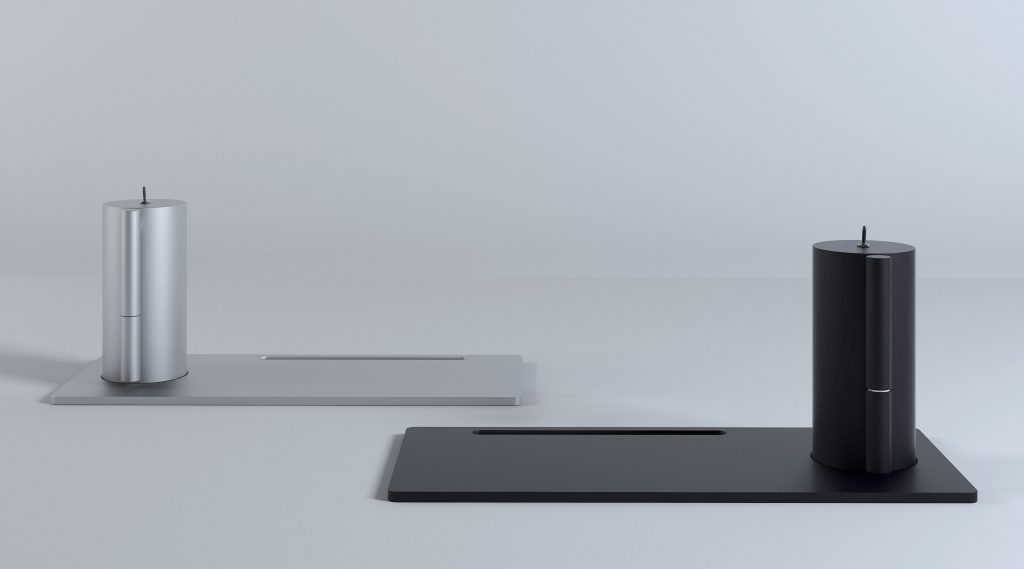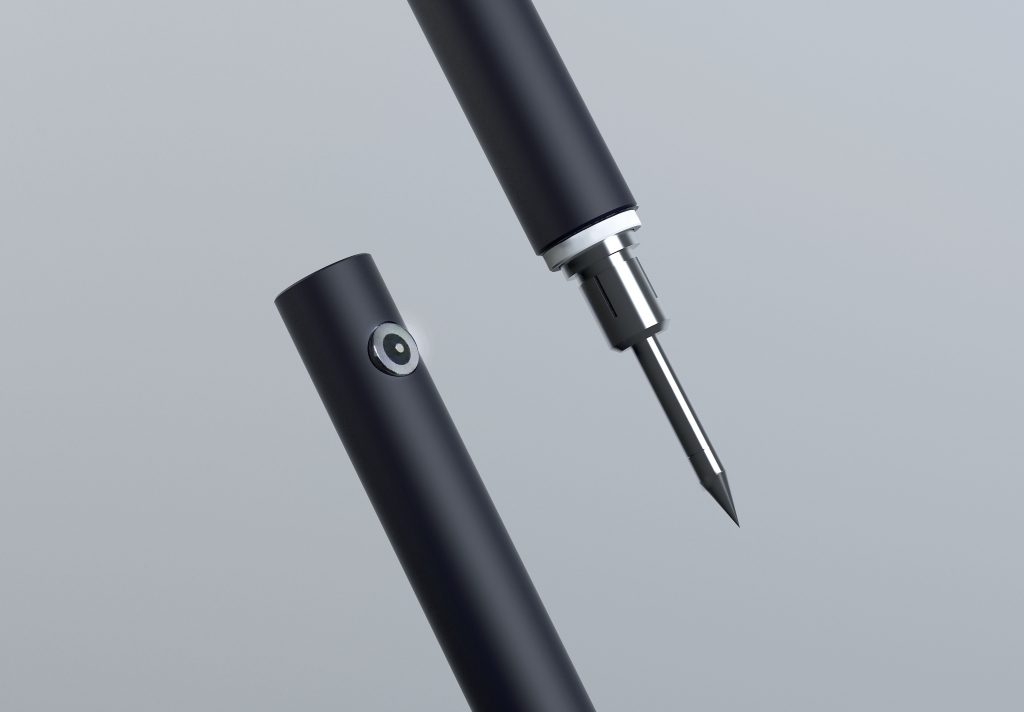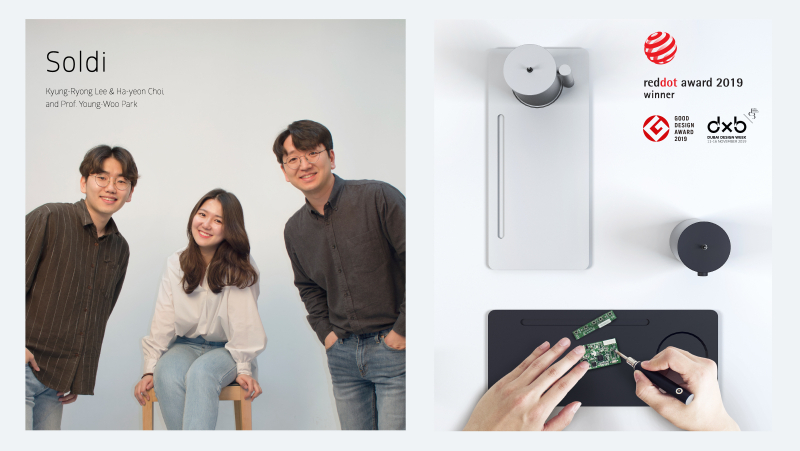Maker Culture, which can also be called Do-It-Yourself Culture (DIY Culture), is spreading steadily throughout the world. Thus, those industries that provide design tools and DIY kits continue to grow. The same goes for the tools and technologies for the production of various electronic devices, like soldering. Through the design of Soldi, we also wanted to highlight the necessity of transforming existing professional industrial tools into a form of everyday stationery, thus making people more friendly on using those tools for their DIY activities.
A design project, carried out by Professor Young-Woo Park and his design team in the Graduate School of Design and Human Engineering at UNIST has recently gained a great amount of academic and media attention throughout the world. As the maker boom arises, more and more people use a soldering machine in their everyday life. For this, the design team has redesigned our conventional soldering machine and made it trendy, yet more functional in the event of soldering.
Their design work, entitled ‘Soldi‘, is a daily soldering stationery designed for makers who enjoy DIY activities in their daily lives. The design team expects this transition of designing stationery-type industrial tools, would be in great demand around the world within the current situation of maker booms and DIY trend.
This groundbreaking design comes from a recent project by Professor Young-Woo Park and his design team, consisting of Kyung-Ryong Lee and Hayeon Choi in the Graduate School of Creative Design Engineering at UNIST.
In September, Soldi has won the prestigious Red Dot Design Award 2019, one of the three major design awards in the world, alongside the German iF Design Award and the U.S. IDEA Award. Earlier this month, it has also been honored with the G Mark, the symbol of Japan’s Good Design Award. In addition to the above awards, the team has been invited to showcase their design work at the Dubai Design Week 2019―Global Grad Show.
“Soldi can be placed on any furniture to make your workplace looking functional and stylish. And this makes it a desk objet that fits well in your living space, despite the property of soldering iron,” says Professor Park. “Through the design of Soldi, we wanted to break the wall of soldering and bring it into everyday life, such as pen-writing on paper. For that, our design direction was to design Soldi as a desk-objet that fits well with living furnitures at homes.”

Soldi by Professor Young-Woo Park, Choi Ha-Yeon, and Lee Kyung-Ryong in the Graduate School of Creative Design Engineering at UNIST.
Soldi consists of three parts: 1) station, 2) wireless soldering pen and 3) plate. The station and pen can be used independently, and the plate provides a work space for soldering on any type of desks. The designs of Soldi’s station, soldering iron, and plate are inspired from our existing stationery, in particular, pencil holders, pens with cap and papers.
When the soldering pen is mounted on a magnetic connector in the station, heat is generated. After about 20 seconds, it can achieve the operating temperature of 420 celcius. Once preheated, the iron can be soldered for about five minutes. Through the application of wireless soldering iron, Soldi immediately improve the user experience, thus removing the extra step of frequently placing the iron in its cradle.
Besides, the station that delivers heat to the iron is also equipped with a rechargeable battery. In other words, as long as the station is charged, one can solder freely anytime and anywhere. Once charged, the battery can last up to six hours.

Soldi by Professor Young-Woo Park, Choi Ha-Yeon, and Lee Kyung-Ryong in the Graduate School of Creative Design Engineering at UNIST.
“Advances in 3D printing enable makers to create, craft, develop and prototype new and interesting ideas and products,” says Professor Park. “This transition of designing stationery-type industrial tools, would be in great demand around the world within the current situation of maker booms and DIY trend.”
Meanwhile, Soldi will be displayed at the Global Grad Show exhibition, part of the Dubai Design Week 2019 from November 12 to 16, 2019. Held in partnership with Investment Corporation of Dubai, the Global Grad Show is a key event of Dubai Design Week. The exhibition showcases forward-thinking ideas selected based on their power to accelerate change and improve lives. The designers themselves will present their ground-breaking prototypes, selected from over 15,000 entries. The exhibition will showcase works from world’s leading design schools, including the Royal College of Art (RCA), MIT Media Lab, and the TU Eindhoven.

















